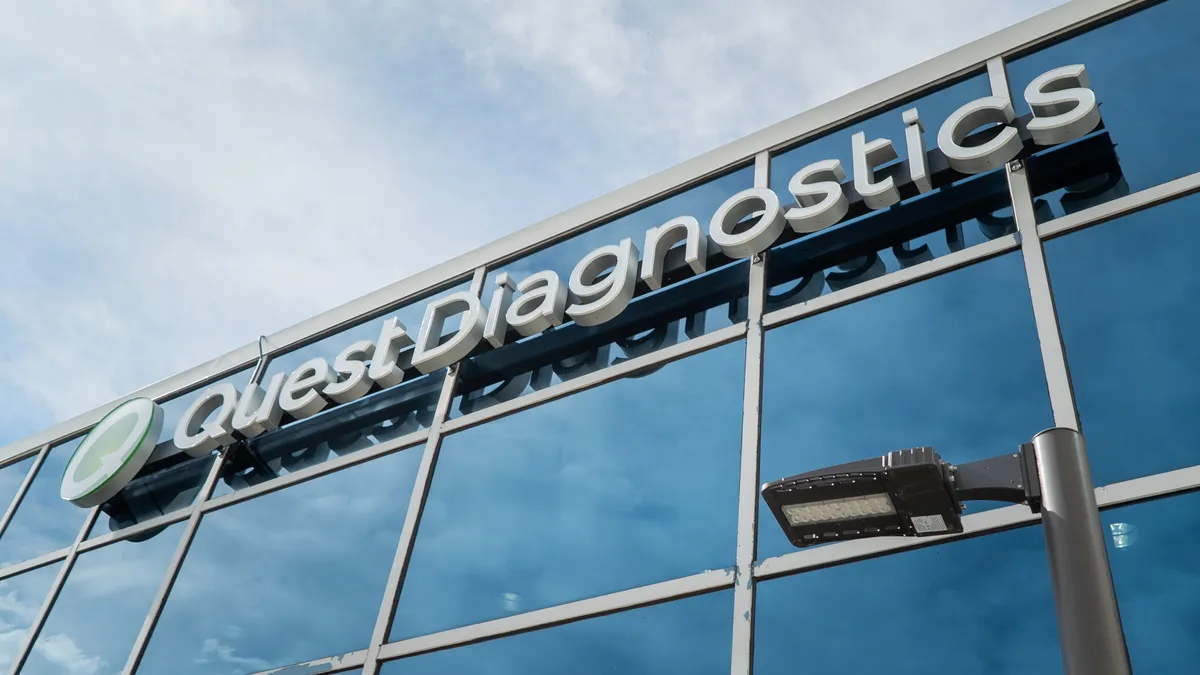Q4 Insights:
Quest Diagnostics said profit plunged in the fourth quarter amid a continued decline in demand for COVID-19 testing.
The company, one of the largest U.S. laboratory testing firms, also lowered estimates for its pandemic-related business for 2023 after COVID-19 testing volumes fell to about 17,000 tests per day from about 60,000 a day at the peak of the pandemic, CEO Jim Davis said on a conference call with investors on Thursday.
Revenue from COVID testing slid 75% to $184 million in the fourth quarter, while net profit dropped 74% to $101 million.
“While we did see a steady ramp upward in COVID-19 volumes throughout Q4, our volumes have steadily declined since late December. We expect our COVID-19 revenues to be significantly lower in 2023 compared to 2022. We have lowered our prior COVID-19 volume expectations in 2023 from 10,000 to 15,000 molecular tests per day to 5,000 to 10,000 tests per day,” Davis said.
Quest performed 1.2 million molecular tests in the fourth quarter, down from 1.9 million in the third quarter and 5.4 million in the year-earlier period. In light of the falling volumes, the company cut $150 million from its 2023 COVID-19 revenue forecast from the estimate it made in October.
Shares of Quest fell 2.1%, or $3.17, to $145.47 on Thursday.
Regulatory changes boost business
Quest said it has identified regulatory changes that will benefit it in 2023. Congress’ decision to delay reimbursement cuts under PAMA — the Protecting Access to Medicare Act of 2014 — spares the company from changes it expected to curb revenue by $80 million and $85 million this year.
David said on the call that he wants to find “a permanent fix to PAMA.”
The company also is set to benefit from the first increase in Medicare reimbursement for specimen collection fees in nearly 40 years. Quest expects the fee increase to add $35 million to $40 million to its sales this year.
“We’ve begun discussions with our health plan customers about getting paid appropriately for the phlebotomy services we provide to their members. Higher specimen collection fees enable us to make continuous investment in patient services,” Davis said.
Layoffs to save $100M
Quest also said it’s reducing its headcount by about 1.5% to lower its costs by $100 million this year. Corporate support functions will account for most of the layoffs. The company expects to see a modest benefit from the cuts in the first quarter with bigger savings arriving later in the year.
While Quest is cutting staff in some areas, it is fighting to retain workers in other functions. Turnover has risen in some of the company’s job categories, leading Quest to try to “stabilize” its workforce and “improve frontline employee engagement and retention,” Davis said. Quest expects the actions to improve productivity in 2023.
“Attrition has a really major impact on your productivity when you’re constantly churning phlebotomists, logistics and specimen processing, so that has stabilized, it’s coming down. We feel good about it and we feel good about the overall productivity plan in terms of offsetting inflation,” Davis said.
Forecast:
Quest said on Thursday it’s forecasting full-year net revenue of $8.83 billion to $9.03 billion for 2023 on expectations that falling COVID testing sales will more than offset 2.6% to 3.8% growth in the base business and result in about a 10% decline overall. Management said it expects COVID-19 to dictate whether Quest lands at the lower or upper end of the revenue range.










